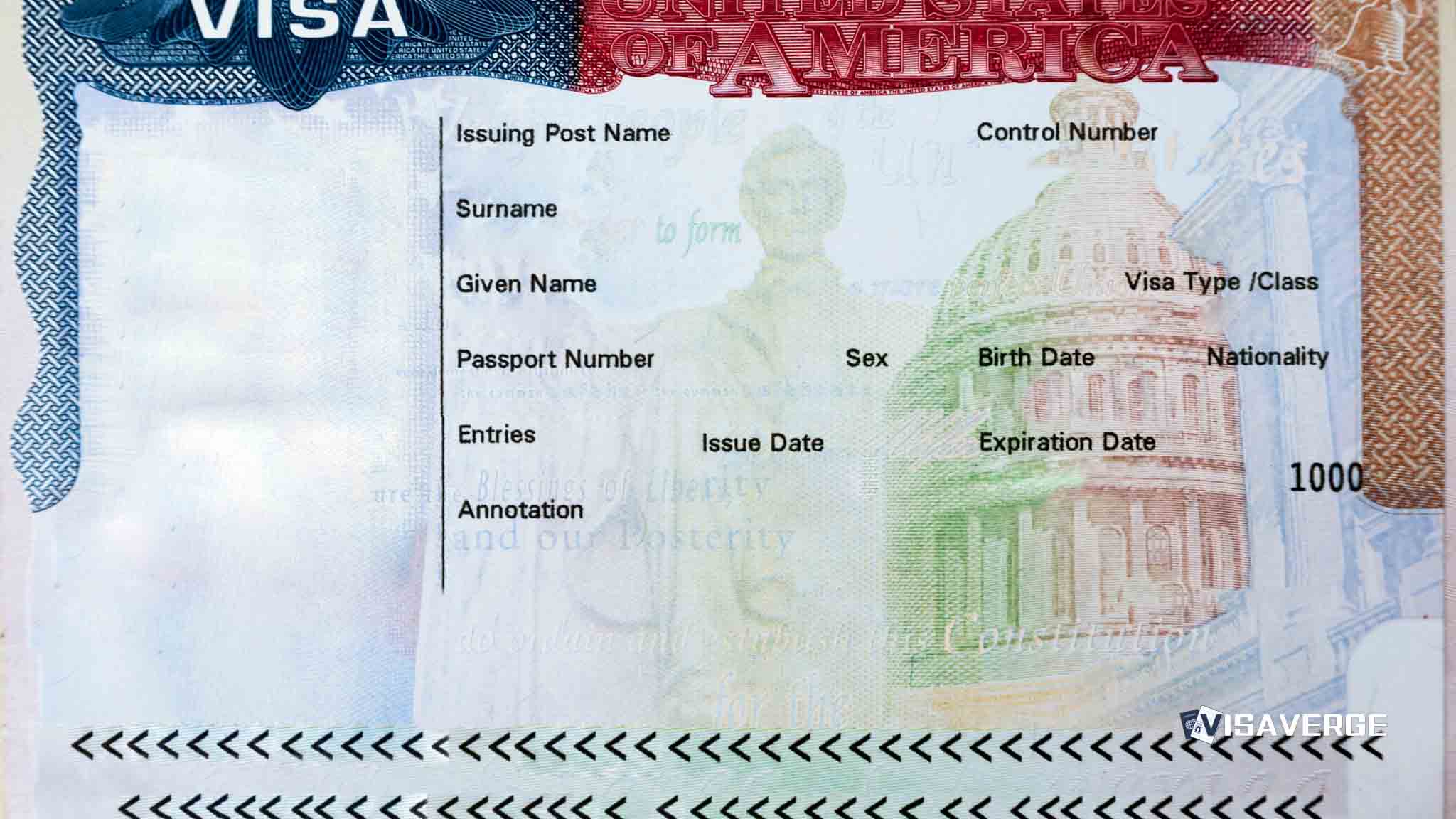Key Takeaways
• Starting July 1, 2025, all private sector expatriates in Kuwait need employer-approved electronic exit permits.
• Exit permit applications are submitted via Sahel app; employers approve them through As-hal Companies portal.
• Minimum salary for sponsoring family members now KD 800 per month; rule aims to prevent illegal departures.
Kuwait’s New Exit Permit Rule: What Expatriate Workers in the Private Sector Need to Know
Kuwait 🇰🇼 has introduced a major change for expatriate workers in the private sector. Starting July 1, 2025, all foreign workers in private companies must get an employer-approved electronic exit permit before they can leave the country. This new exit permit rule is part of a larger set of immigration and labor reforms that aim to give the government more control over who leaves Kuwait and when. The changes affect not only workers but also their families and employers, making it important for everyone involved to understand the new requirements and how they work in practice.

Below is a detailed look at what the exit permit rule means, how it works, why it was introduced, and what it means for expatriate workers, their families, and employers in Kuwait’s private sector.
Who Is Affected and What Has Changed?
The exit permit rule applies to all expatriate workers in Kuwait’s private sector. This means that if you are a foreign national working for a private company in Kuwait 🇰🇼, you now need to get permission from your employer before you can travel out of the country. The rule came into effect on July 1, 2025.
The main change is that workers can no longer leave Kuwait 🇰🇼 freely or just by informing their employer. Instead, they must use a digital system to request an exit permit, and their employer must approve it. Without this permit, workers will not be allowed to leave the country, even for short trips or emergencies.
This rule is part of a wider set of reforms that also include:
- A higher minimum salary requirement for sponsoring family members (now set at KD 800 per month)
- Changes to residency laws, such as shorter contract durations and new penalties for breaking the rules
- A ban on employers deducting administrative fees from workers’ salaries
Why Did Kuwait 🇰🇼 Introduce the Exit Permit Rule?
The Kuwaiti government says the exit permit rule is meant to:
- Improve oversight of expatriate departures
- Prevent illegal departures and absconding workers
- Modernize labor and immigration systems
- Balance the rights of workers and employers
Officials from the Public Authority for Manpower (PAM) describe the new system as a way to make exit procedures faster, more transparent, and fairer for everyone. They say the digital platform will help keep better records and reduce paperwork.
However, critics—including human rights groups and some worker advocates—argue that the rule gives employers too much control over workers’ freedom to travel. They worry that it could be used to punish workers or stop them from leaving in cases of abuse or disputes.
How Does the Exit Permit Process Work?
The process for getting an exit permit is now fully digital. Expatriate workers must use the Sahel mobile application, which is available for smartphones. Here’s a step-by-step guide to the process:
1. Log in to the Sahel App:
Download and open the Sahel app on your mobile device. Log in using your credentials.
2. Go to “Services” and Select “Expatriate Labour Service”:
Find the section for expatriate labor services.
3. Choose “Issuing Exit Permit”:
Select the option to request an exit permit.
4. Fill Out the Application Form:
You’ll need to provide:
– Your full name and civil ID number
– Your employer’s details
– The date you plan to leave and your expected return date
5. Submit the Application:
Send your request electronically through the app.
6. Employer Review:
Your employer receives the request through the As-hal Companies portal and must approve or reject it.
7. Track Your Status:
You can check the status of your application in the Sahel app at any time.
8. Receive Your Exit Permit:
Once approved, your exit permit is issued digitally. You can then travel as planned.
The system operates 24 hours a day, 7 days a week, including weekends, to make sure workers can apply and employers can respond at any time.
For more details and official instructions, you can visit the Public Authority for Manpower (PAM) official website.
What Happens If You Don’t Get an Exit Permit?
If you try to leave Kuwait 🇰🇼 without an approved exit permit, you may be stopped at the airport or border. You could also face legal problems, including fines or even deportation. Employers who do not follow the rules may also face penalties, such as fines or restrictions on hiring new workers.
It’s important for all expatriate workers in the private sector to follow the new process carefully to avoid travel delays or legal trouble.
How Does the Minimum Salary for Family Sponsorship Work?
Alongside the exit permit rule, Kuwait 🇰🇼 has raised the minimum salary required for expatriates to sponsor family members. Now, you must earn at least KD 800 per month to bring your spouse or children to live with you in Kuwait 🇰🇼.
This change is meant to make sure that only workers who can support their families financially are allowed to sponsor dependents. However, it also means that many lower-paid workers will no longer be able to bring their families to Kuwait 🇰🇼, which could have a big impact on their lives and well-being.
How Do These Changes Affect Expatriate Workers?
For many expatriate workers, the new exit permit rule means:
- Less freedom to travel: You must get your employer’s approval every time you want to leave the country, even for short trips or emergencies.
- More paperwork and digital steps: You need to use the Sahel app and wait for your employer to respond.
- Risk of delays or denial: If your employer is slow to respond or refuses your request, you may miss important events or face personal difficulties.
- Harder to bring family members: The higher salary requirement for family sponsorship means fewer workers can live with their families in Kuwait 🇰🇼.
Some workers worry that employers might use the exit permit system to punish them or stop them from leaving, especially if there are disputes or complaints. Human rights groups have warned that this could lead to more cases of exploitation or abuse.
How Do These Changes Affect Employers?
For employers in the private sector, the exit permit rule brings:
- More control over workers’ travel: Employers must approve every exit permit request, giving them more oversight.
- New administrative duties: Employers need to check and respond to requests through the As-hal Companies portal.
- Clearer legal rules: The digital system makes it easier to track who is leaving and when, reducing the risk of workers leaving without notice.
Some employers welcome the new system because it helps prevent workers from leaving without permission or disappearing. Others worry about the extra work involved in managing requests, especially for large companies with many expatriate staff.
Background: The Kafala System and Previous Rules
Kuwait 🇰🇼 has long used the kafala (sponsorship) system, which ties a foreign worker’s legal status to their employer. Under this system, workers need their employer’s approval for many things, including changing jobs or leaving the country.
In the past, exit permits were sometimes required, but the process was less formal and not fully digital. The new rule makes the process official, electronic, and mandatory for all private sector expatriate workers.
This change is part of a wider effort to modernize Kuwait’s labor and immigration systems, make them more efficient, and respond to economic and demographic pressures. The government says these reforms will help protect workers’ rights and make the labor market fairer, but critics argue that they mostly benefit employers and the state.
What Do Experts and Stakeholders Say?
Government and Public Authority for Manpower (PAM):
Officials say the exit permit rule is a step forward in making exit procedures faster, clearer, and more transparent. They highlight the benefits of the digital platform, which allows for better record-keeping and less paperwork. The government also says the rule will help protect workers’ rights by making sure all departures are properly documented.
Human Rights Groups and Worker Advocates:
Many human rights organizations are critical of the new rule. They argue that it gives employers too much power over workers’ lives and can be used to punish or control them. They warn that workers who face abuse or unfair treatment may find it even harder to leave Kuwait 🇰🇼, since their employer can simply deny the exit permit. Some groups have called for the rule to be changed or removed to better protect workers’ freedom and safety.
Employers and Business Community:
Most employers support the rule because it gives them more control and helps prevent workers from leaving without notice. However, some worry about the extra work involved in managing exit permit requests, especially for companies with many expatriate employees. They also appreciate the digital system, which makes the process faster and easier to track.
Early Results: High Adoption and Immediate Impact
The new exit permit system saw a huge response as soon as it launched. Within just a few hours on July 1, 2025, more than 36,000 exit permit applications were submitted through the Sahel app. This shows that both workers and employers are aware of the new rule and are taking steps to comply.
The higher minimum salary for family sponsorship also has a big impact. Many expatriate workers in lower-paying jobs will no longer be able to bring their families to Kuwait 🇰🇼, which could affect their quality of life and willingness to stay in the country.
What’s Next? Future Developments and Ongoing Debates
Kuwait 🇰🇼 is expected to keep updating its labor and immigration policies. More digital tools and stricter rules may be introduced in the future. The government will likely continue to focus on controlling the flow of expatriate workers and making sure employers follow the rules.
At the same time, human rights groups and worker advocates will keep watching the situation and pushing for changes to protect workers from abuse and exploitation. The debate over how to balance government control, employer interests, and worker rights is likely to continue.
Practical Tips for Expatriate Workers and Employers
If you are an expatriate worker in Kuwait’s private sector:
- Always use the Sahel app to apply for an exit permit before making travel plans.
- Talk to your employer early if you need to leave the country, especially for emergencies.
- Check your salary if you want to sponsor family members—make sure you meet the KD 800 per month requirement.
- Keep records of your applications and communications with your employer.
If you are an employer:
- Monitor the As-hal Companies portal regularly for exit permit requests.
- Respond quickly to avoid delays for your employees.
- Understand your responsibilities under the new rules to avoid penalties.
For more information and official guidance, visit the Public Authority for Manpower (PAM) official website.
Summary Table: Key Points of Kuwait’s 2025 Exit Permit Rule
| Aspect | Details |
|---|---|
| Effective Date | July 1, 2025 |
| Who is Affected | All expatriate workers in Kuwait’s private sector |
| Exit Permit Requirement | Mandatory employer-approved electronic exit permit before departure |
| Application Platform | Sahel mobile app (workers), As-hal Companies portal (employers) |
| Minimum Salary for Family Visa | KD 800 per month |
| Purpose | Streamline exit procedures, enhance oversight, prevent illegal departures |
| Operating Hours | 24/7, including weekends |
| Early Adoption Data | 36,000+ applications within hours of launch |
| Criticism | Potential for increased employer control and worker exploitation risks |
| Government Position | Modernization, transparency, protection of rights |
Conclusion: What Should Expatriate Workers and Employers Do Now?
Kuwait’s new exit permit rule marks a big change for expatriate workers in the private sector. It’s important for both workers and employers to understand the new requirements, follow the digital process, and be aware of their rights and responsibilities. The rule is meant to improve oversight and make the system more efficient, but it also raises concerns about worker freedom and employer control.
As reported by VisaVerge.com, staying informed and prepared is the best way to avoid problems and make sure your travel plans go smoothly. Expatriate workers should use the Sahel app for all exit permit requests, while employers should respond quickly and fairly to avoid delays and legal issues. With more changes likely in the future, keeping up to date with official announcements and guidance will help everyone adjust to the new rules and protect their interests in Kuwait 🇰🇼’s changing labor market.
Learn Today
Exit Permit → An official digital authorization required for expatriates to leave Kuwait legally in the private sector.
Sahel App → Mobile application used by workers to apply for exit permits electronically in Kuwait’s new system.
As-hal Companies Portal → Online platform where employers review and approve expatriate exit permit requests digitally.
Kafala System → Sponsorship system in Kuwait tying a worker’s legal status and travel rights to their employer.
Minimum Salary Requirement → A KD 800 monthly wage threshold for expatriates to sponsor family members in Kuwait.
This Article in a Nutshell
Kuwait’s new exit permit rule mandates private sector expatriates get employer approval digitally before travel starts July 2025. This reform enhances government control, requires using the Sahel app, and raises salary limits for family sponsorship, impacting many workers and redefining labor rights in Kuwait’s private sector workforce.
— By VisaVerge.com













